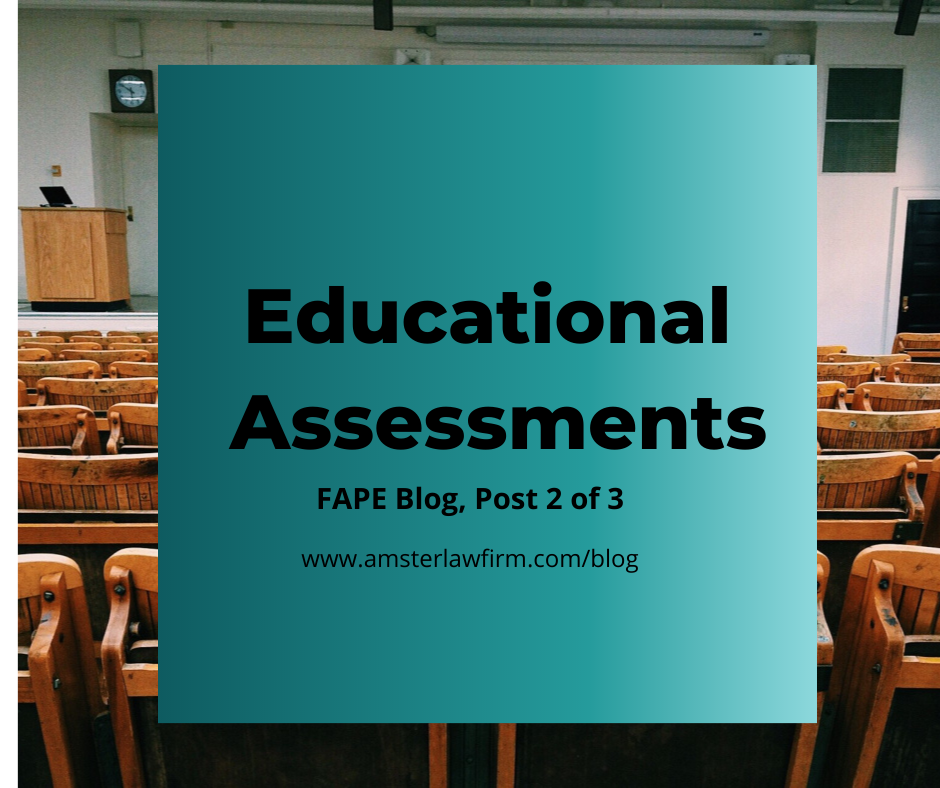FAPE Blog, Post 2 of 3. Click here for Post #1.
An educational assessment or evaluation is a critical catalyst for the IEP process. Assessments help identify the student’s learning needs and determine whether the student requires special education services.
In order to provide special education services, a school district must first assess the student in all areas of suspected disability. After receiving a referral, the district has 15 calendar days to send an assessment plan to the parents, who must consent to any assessment. After the initial assessment(s), a school district is required to reassess the student at least every three years. However, parents or teachers may request an assessment sooner if the student has other areas of suspected disability or the student’s assessments become outdated.
A qualified professional must conduct the assessment, which cannot discriminate by ethnicity, language, or disability. Nor can a student’s educational placement be dictated by the result of one test alone. The assessment must be comprehensive and consider the student’s developmental and performance levels in a variety of areas (e.g., social, intellectual, communication).
School districts are required to inform parents of the parent’s right to seek another opinion from a qualified professional, called an independent educational evaluation (IEE). If parents disagree with the district’s assessment, the parents may obtain an IEE at the district’s expense. This means that a parent may ask for a professional evaluator, not employed by the school district, to conduct this evaluation. For more information on when you might need an IEE and how to request it, see here. For assistance with how to select an independent evaluator, check out this blog post.
Keep in mind that the district also has the right file for due process hearing to prove that its assessment was appropriate and an IEE should not be provided. However, parents can always pay privately for an IEE and possibly seek reimbursement from the district at a later date. The district must always consider private assessment findings in an IEP meeting.
Whether the district, an independent evaluator, or another private evaluator conducts the assessment, it remains a valuable tool in determining the student’s educational needs.


Add Comment